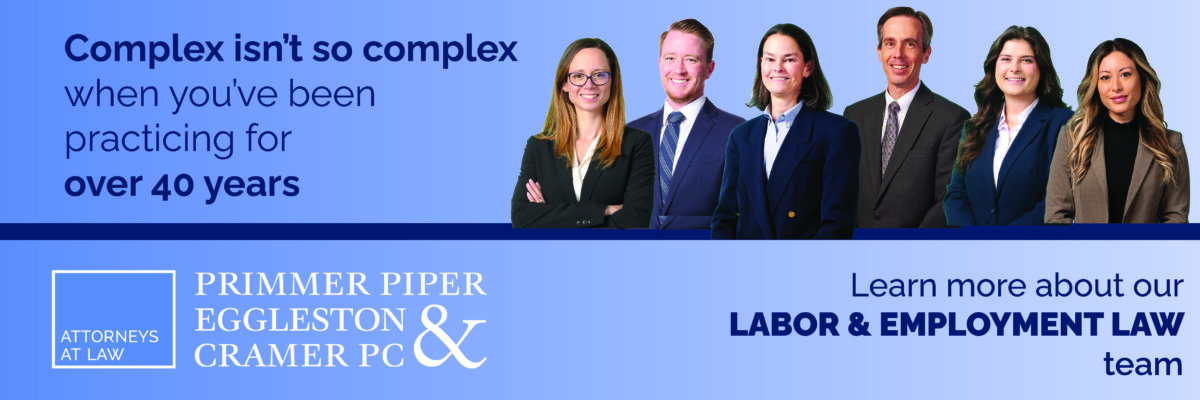
Litigation

Intellectual Property & Technology Law

Our firm guides clients in virtually all aspects of employment law to resolve workplace problems. Attorneys in our Labor & Employment Law Group have extensive experience in state and federal litigation matters including those alleging breach of employment contract, wrongful termination, wage and hour, harassment, discrimination, and related claims. The firm represents clients before federal and state administrative agencies, including the Equal Employment Opportunity Commission (EEOC), the United States Department of Labor, the Occupational Safety and Health Administration, the Vermont Attorney General’s Office, and the Vermont Department of Labor.
Our firm’s attorneys have insight into how matters play out in litigation and use a strategic approach to guide clients through difficult personnel situations. We are experienced in mediating and defending claims in the administrative and court settings. The Labor & Employment Law Group also keeps clients informed of changing federal, state and local employment laws.
Services Provided
- Counseling on employment practices, employee discipline, employee terminations, drug & alcohol testing, internal investigations, workplace audits, employee safety, Internet privacy, protecting confidential and proprietary information, resolving workplace problems and other employment issues
- Preparation of personnel policies and manuals
- Contract negotiation, including employment and separation agreements for executives and licensed professionals
- Litigation
- Responding to government inquiries and audits
- Counseling on compliance with state and federal statutes and regulations affecting the workplace, including Vermont’s Fair Employment Practices Act, state and federal family and medical leave laws, unemployment compensation and workers’ compensation laws, Title VII of the Civil Rights Act of 1964, Americans with Disabilities Act and Age Discrimination in Employment Act
Related Posts (View All)
Frequently Asked Questions
No. An employer must pay an employee overtime for all hours worked over 40 in a work week unless the employee specifically meets an exemption from the overtime provisions of state and federal law. If the job duties of an employee’s position do not qualify for an exemption, the employee must be paid overtime (1.5 times their regular rate) for all hours worked over 40 in a workweek.
“Employee at will” is a legal term that means that the employee has no legal contract with the employer. They can leave the company, or be terminated, with or without cause.
Employee manuals can be good tools to communicate with your clients employees about policies and procedures which you would prefer not to have to repeat again and again when asked. However, you should be extremely cautious in preparing a document that could be read as providing contract rights to your employees. You need to strike the right balance in addressing these conflicting goals.
A brief consultation with your attorney will help you to size up whether it is worth contesting the employee’s request. Just because an employee is terminated for good reason does not necessarily mean that they are prohibited from receiving unemployment.


 " alt="About Us" title="" width="" height="" style="">
" alt="About Us" title="" width="" height="" style="">